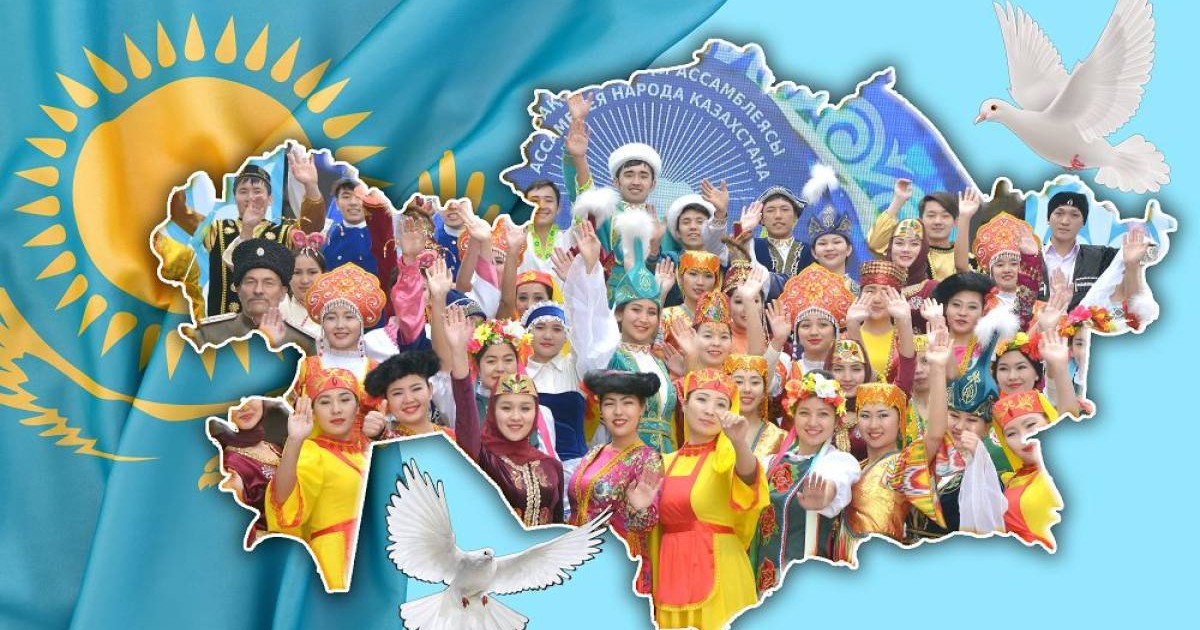The number of languages you know is the number of times you are human (J.V. Goethe)
Since 2017, the Day of Languages of the People of the country has been widely celebrated in multinational Kazakhstan on September 5.
This date is associated with the name of Akhmet Baitursynov, whom Kazakhs call the teacher of the nation. Why is Baitursynov called the teacher of the nation? This is evidenced by the methods of studying the state language, formed on the basis of his works, and linguistic teachers recognize the greatness of the Teacher of the nation, as Akhmet Baitursynov was called, since he was certainly the first researcher of the Kazakh language.
The importance of this date cannot be overestimated. Unfortunately, in our difficult times, the concepts of national identity, national identity of the people in general, and individual citizens in particular, are often used for reactionary purposes to incite ethnic hatred. The celebration of the Day of Languages aims at the noble mission of preserving and developing the languages of all ethnic groups living in the territory of modern Kazakhstan. Our country has always been proud of its multinational nature: by the will of historical events, the Kazakh land became a haven, and subsequently a homeland for various ethnic groups. Currently, representatives of 130 ethnic groups live in Kazakhstan, and the Assembly of the People of Kazakhstan, a consultative and advisory body for the harmonization of interethnic relations, is successfully operating.
If we turn to the basic law of the country, the Constitution, then Article 7 states: the state language is Kazakh; the Russian language functions on an equal basis with Kazakh; "the state takes care of creating conditions for the study and development of the languages of the people of Kazakhstan." The Law on Languages in the Republic of Kazakhstan, adopted on July 11, 1997, guarantees the freedom to choose the language of communication, upbringing and education, and also ensures the creation of conditions for the study and development of the languages of all the peoples of Kazakhstan. State regulation is aimed at "ensuring equal respect for the state language and the languages of the people of Kazakhstan"; "creating conditions for the study and development of the languages of the people of Kazakhstan". At the legislative level, every citizen has the opportunity to study and develop their native language, because each language has its own destiny, inextricably linked with other languages of our country.
Thus, it is clear that the State, for its part, has provided the legal basis for the functioning of languages in Kazakhstan. The implementation of the principles regulated in legal documents is the task of the society, each of its members. One of the main proponents of the idea of preserving the language and culture of each ethnic group living in our country are specialists engaged in educational activities at various levels of education. From a young age, fostering mutual respect for the language, culture, and history of all members of Kazakh society is a task facing all those connected with the education system. A prerequisite in this process is a deep knowledge of the spiritual heritage of past generations of the peoples living in our country now.
Language is the living soul of a people, its joy, pain, memory, and treasure. There is no language that does not deserve respect. And this is the strength of Kazakhstan. The unity of languages and cultures of a multinational people is a monolith of friendship on which the country's future is built.
A.K.Akhmedova
Senior lecturer of the Department of Language and
General Education Training of Foreigners
of the Faculty of Pre-University Education
Al-Farabi Kazakh National University





